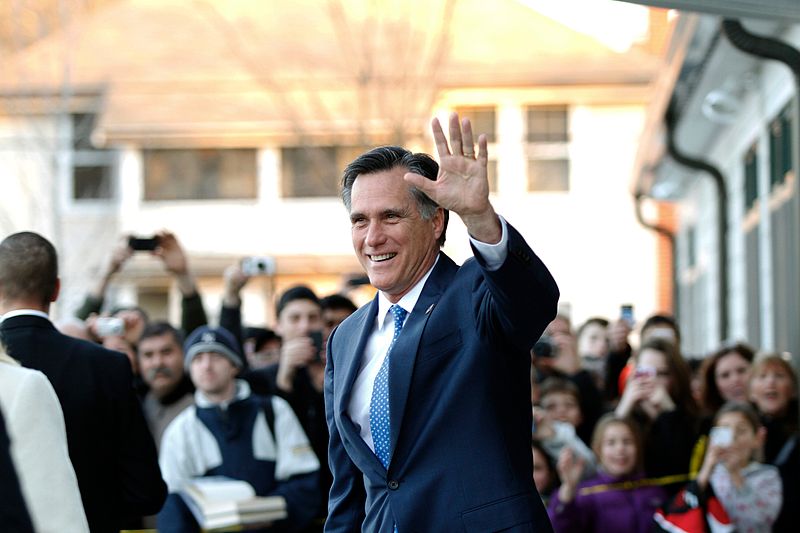The American CEO
Prior to Friday’s bad jobs report, Mitt Romney was having a bad week. Activists, conservatives, and advisors from all over the Republican Party had been ripping the governor’s campaign. They claimed he was late in responding to the Washington Post’s story about outsourcing jobs and that he was foolish not to call Obamacare a tax. But, most of all, that his campaign was too cautious, that its “economic” message was simply too narrow. He was missing the bigger picture. If it weren’t for the meager jobs report, I don’t know that I would have wanted to be in Boston this weekend.
But alas, the bad jobs report did in fact arrive nicely wrapped at the GOP’s doorstep, and Governor Romney was let off the hook. Close one Mitt.
Still, even though the critics are momentarily silenced, busy focusing the whole of their brainpower on jobs and the president’s new tax plan, they actually made a good point. Their frustration was well founded. Governor Romney’s campaign has played it safe. He has been “running out the clock” until Election Day. He is betting on discontentment with the economy as the path to victory. No matter what happens around him, Governor Romney sticks to the playbook. However, when a flurry of other issues gain traction, Romney’s narrow economic message proves insufficient. The Republican Party saw it happen, and got mad. They wanted the governor to listen to Obama for once: change things. He should shake up the campaign and respond dynamically with the rapidly changing political landscape.
But the pundits and the activists are missing one crucial piece of information: Mitt Romney isn’t built that way. While his positions often change, the man does not. He has always been, and it seems will always be, a focused, pragmatic, and near-sighted man. Notice there are admirable traits in that last sentence. He is efficient and well organized. He knows how to set out and complete objectives: His tenure at Bain Capital proved it. So how can he translate it to politics?
Governor Romney will do what it takes to get elected, but his vision extends not far beyond November 6. He speaks in broad terms about policy because he says laying out plans only gives his opponents fodder. What does he expect will happen if he’s elected? Has he not thought about that? He will have to govern by signing his name (which still means something according to the Constitution) on pieces of paper called legislation that his opponents will not like. But his supporters will. And he should too because the president should believe in what he’s doing.
Mitt Romney can run a campaign by telling Americans about everything they’re missing, and what he would do to fill the void. It is efficient and clear. He sees the problem, and sets out to fix it. His strategy is sensible (notwithstanding the sometimes ironclad rigidity). It follows the mind of a businessman.
But the president is more than a jobs plan. He is more than the economy. He doesn’t try to fill an empty void. The president of the United States of America makes you realizes there are plenty more voids out there, and all of them are within reach. The president doesn’t just try to fix the problems in front of him: He looks at what’s to come, and he thinks about what is yet to come.
The United States was formed from a few men’s collective vision. It is still a vision, and we deserve a visionary. Of course, if Mitt Romney garners more electoral vote on November 6, he will become president, and all of this talk won’t really mean much. But, hey, this is just my vision.

